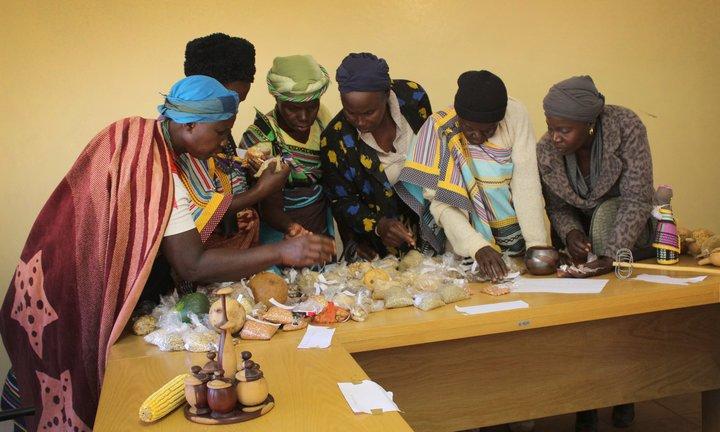Gender and Climate Change

With contribution from Bioversity International, a set of policy briefs published by CIFOR in light of the upcoming Global Landscapes Forum, provides guidance to better identify and address gender issues in climate policy and action.
With contribution from Bioversity International, a set of policy briefs published by CIFOR in light of the upcoming Global Landscapes Forum, provides guidance to better identify and address gender issues in climate policy and action.
Climate change impacts rural communities in many ways. Rural women are particularly vulnerable because they often lack access to resources important to climate change adaptation, have limited participation in decision-making processes and are often overlooked by researchers and development programmes. However, women farmers’ role and knowledge is critical to adapt to climate change and to ensure the food and nutrition security of their households and communities.
To address some of the most pressing policy issues concerning gender and climate change, the Center for International Forestry Research (CIFOR) has published a set of policy briefs on the occasion of the Global Landscapes Forum and the United Nations Climate Change Conference of the Parties, which are currently happening in Paris, France.
Gender equality in climate change adaptation and mitigation, gender-responsive financing, and gender-sensitive monitoring of sustainable development achievements are some of the issues analyzed in the briefs.
Bioversity International’s scientist Ronnie Vernooy contributed with an analysis of women’s leading role in implementing crop conservation and diversification strategies to adapt seed systems to climate change. These systems are vital for food security, but are currently under stress due to political, social, economic and environmental changes. In Seeds of Adaptation – Climate change, crop diversification and the role of women farmers, Vernooy shows how women are at the forefront of implementing such new strategies, but more attention and support are needed from research and development agencies and practitioners. For example, women groups in Africa and Asia are setting up community seedbanks and are driving seed exchange among different communities to maintain and increase crop diversity, which provides options in the face of changing climatic conditions. Women also give priority to nutritious crops to feed their families and, at the same time, maintain varieties that are pest, disease and drought resistant, as well as those that require few inputs.
Download the full set of policy brief on gender and climate change
The set of policy briefs includes contribution from various research and development organizations, such as CARE International, UN Women, IUCN, the CGIAR Research Program on Climate Change, Agriculture and Food Security, and many more.
Photo: Seed fair with smallholder farmers in Mutale, Limpopo Province. This community has been earmarked by the government to set up a community seedbank. Credit: Bioversity International/R.Vernooy
